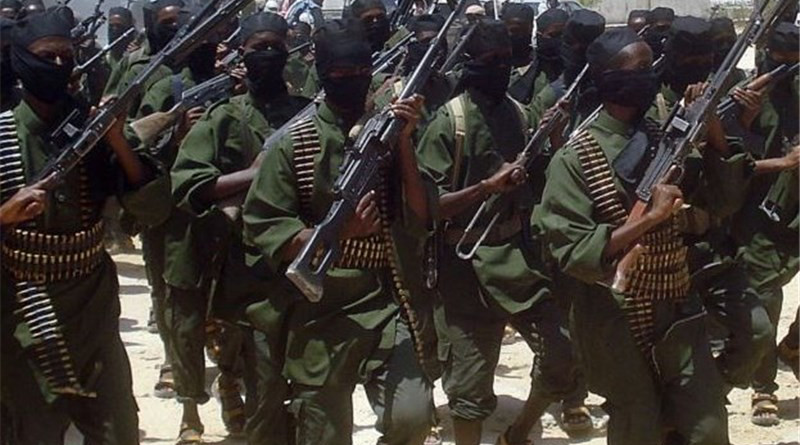The African continent, comprising 55 states with a total population of over 1.4 billion people, continues to undergo a rash of political, economic and humanitarian crises—including food shortages, poverty, a breakdown in the health care systems, along with droughts and floods triggered by climate change.
Military conflicts and civil wars have aggravated the crises. But Africa is also the “epicentre of terrorism”, according to UN Secretary-General António Guterres.
Addressing the Security Council’s Counter-Terrorism Committee on 24 January, he said, “This growing inferno is engulfing millions of Africans.”
This includes women and girls who are deeply vulnerable to sexual and gender-based violence.
Across the continent, Da’esh, Al-Qaida and their affiliates are exploiting local conflict dynamics and fragilities to advance their agendas, while shredding the social fabric of entire countries with the blades of violence, mistrust and fear, Guterres pointed out.
Targeting civilians
In Somalia, Al-Shabaab is under pressure, but far from defeated. And in the eastern Democratic Republic of the Congo (DRC), terrorists continue targeting civilians while expanding their areas of operation, he said.
Terrorism also remains an active threat in northern Mozambique. Across the Sahel, Guterres warned, the increased hostilities between terrorist groups fighting for control over territory and trafficking are “creating nothing short of a hell on earth for the innocent people caught in between.”
And the threat is rapidly spreading to coastal countries, as seen in Benin and Togo.
A disturbing pattern is clear. Community by community, terrorist groups are extending their reach. Growing their continental networks with more fighters, funding, and weapons, Guterres said.
“Forging ties with transnational organized crime groups. And spreading fear, misery and hateful ideologies through cyberspace. In every case, civilians are paying the highest price. But in the end, all of humanity pays.”
“Each terrorist threat, each violent, extremist attack undermines our shared efforts to build and maintain peace, development and stability in Africa, said Guterres.
Terrorism is an all-out assault on civilization itself, he declared.
The International Monetary Fund (IMF), says Sub-Saharan Africa suffers from persistent security challenges, and Sahel countries such as Burkina Faso, Chad, Niger, Mauritania, and Mali are particularly afflicted by protracted conflicts and humanitarian crises.
“While various factors can fuel conflict, our research shows that discontent with state institutions among marginalized groups is a key driver of unrest in the region. Such distrust reflects perceptions that governments fail to address equity issues and inclusive growth—including the fair allocation of natural resources and human capital development,” IMF said
The Counter-Terrorism Committee (CTC) was established by the Security Council back in September 2001 in the wake of the 11 September terrorist attacks in the United States.
The Committee, comprising all 15 Security Council members, was tasked with monitoring implementation of resolution 1373 (2001), which requested countries to implement a number of measures intended to enhance their legal and institutional ability to counter terrorist activities at home, in their regions and around the world.
According to the UN, Member States have the primary responsibility to implement the United Nations Global Counter-Terrorism Strategy and the counter-terrorism requirements set out in Security Council resolutions.
“The UN system seeks to provide Member States with relevant, coherent, coordinated and impactful support, as they strive to fulfill their counter-terrorism related commitments and international obligations, including to uphold the rule of law and human rights”.
At the heart of these efforts, the United Nations Office of Counter-Terrorism (UNOCT) collaborates, across all its areas of work mandated by the General Assembly, with the Executive Directorate of the Security Council’s Counter-Terrorism Committee (CTED).
CTED assists the Committee in monitoring the implementation of relevant Security Council resolutions by Member States and identifying any gaps. Security Council resolution 2395 (2017) laid down the basis for the close coordination and cooperation between UNOCT and CTED, which was reinforced by Security Council resolution 2617 (2021).
According to the UN, UNOCT and CTED work closely together, both directly and through the Global Counter-Terrorism Coordination Compact, a United Nations interagency coordination framework led by UNOCT and of which CTED is a member.
The UN also has a Special Rapporteur on Counter-Terrorism mandated to promote and protect human rights and fundamental freedoms while countering terrorism.
Meanwhile, a UN Ad Hoc Committee, established in December 1996, has negotiated several texts resulting in the adoption of three treaties:
The International Convention for the Suppression of Terrorist Bombings adopted by the General Assembly in resolution 52/164 of 15 December 1997 (status); and
The International Convention for the Suppression of the Financing of Terrorism adopted by the General Assembly in resolution 54/109 of 9 December 1999 as corrected (status);
The International Convention for the Suppression of Acts of Nuclear Terrorism adopted by the General Assembly in resolution 59/290 of 13 April 2005 (status)
Africa represents the future
Meanwhile, during a visit to several African countries, US Secretary of State Antony Blinken told reporters on 23 January that “what motivates us is primarily President Joe Biden, for whom Africa represents the future, the future for the United States.”
“Soon”, he pointed out, “one in four people will be African; the voices of Africa are increasingly heard around the world in all international meetings; and for us, it represents both an opportunity and, I think, a need to connect with a rising, young population. We had all the African leaders in Washington last year, and this trip is a follow-up to that meeting, to ensure that all the commitments we made in Washington are followed through.”
He also said the US has significant investments in Africa, especially from the private sector. The government’s role is to incentivize this investment, to support it, if necessary, for example, in risk and insurance.
“And it’s going well, I believe, in the sense that we see investments not only in infrastructure but also in healthcare systems, food security, combating climate change.”

